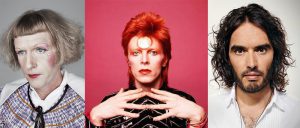Dirk Bogarde, the English actor and writer who died in 1999, famously said that to be a successful actor you just need “one great look”.
He meant a distinctive look that you “own”, something that differentiates you, helps you to stand out from the crowd of other attractive people who want to make their living as actors. Of course there are other things, which almost always include beauty, which you need to even get the chance. As far as I can see it isn’t much different for the rest of us, beautiful or not, we all need to be different in some way to stand out and get noticed. Whilst getting noticed can be very helpful in your personal life, it really is essential in business. Dirk had a great brand and he knew what it was based on but what about your business?
At this point you’re probably thinking ‘well, isn’t a business different to an individual? Isn’t a business brand different to “personal branding” that we hear so much about these days?’ I’m really not sure it is, and anyway, I often find it very useful to think of brands as people, to personify the brand: the aging hippy, still challenging authority and the status quo, that’s Virgin; the straight-laced and deluded Mr Mainwaring banks (almost any traditional bank); the taciturn but thoughtful (real) man, who is prepared to wait for his gratification, who drinks Guinness. Strongly branded people change the world and how we see it and they can also be a great guide to how to brand your business too.
Whilst you may not approve of what Russell Brand says, he has created a great personal brand that has served him very well to date. Whilst Russell’s comments and openly worded thoughts may be a little too much for some, being controversial is a proven market entry and brand building strategy, literally in Russell’s case. The late David Bowie was shockingly androgynous when I was a child and Grayson Perry, who is a hero (or should it be heroine?) of mine, has built a platform as a social commentator, on the back of his exploration of his own identity; his intriguing use of pottery to explore sexual identity, about who he, and we all are; and his flamboyant and doll-like alter-ego Claire.

All of these folk have leveraged their talent by creating a distinctive personal brand and you can do the same too, for yourself, or your business. Rather than manufacturing controversy, like Russell, Grayson and Bowie are wonderful examples of people brave enough to be genuinely themselves and it has worked to their great advantage. Any of us can do things that challenge the status quo and get us noticed but it really needs to be genuine, to be credible, if you want it to last. Would Grayson have been such a successful artist, and commentator on British public life, that he now is, without being a transvestite? My answer to that is No and for two reasons: the first is that to be so successful you need to be true to yourself. Secondly, if that truth allows you to be meaningfully different in what you do, to stand out from the crowd, you are much more likely to succeed.
Of course, not many of us, or our businesses, are so strikingly different but we are all different in some way and so are our businesses if it they have had any success at all. The trick is to both recognise these differences and then to exploit them. No matter how small the difference, if it is genuine and it appeals to your target audience, you will find it will help you to build and sustain a brand that will make your business more valuable. Dirk had a look, what do you have? More pertinently perhaps, as I guess most of you aren’t aiming to be the next Brad Pitt, what genuine difference does your business have that you can leverage more than you currently do?
What’s my point?
My point is quite a simple one really. To be successful, to create a great personal or business brand, you need to be genuine, true to yourself, and offer benefits that people want. To do all that requires quite a lot of personal knowledge and awareness about yourself and your business.
As ‘The Who’ once repeated, rather catchily, “Who are you? I really want to know. Who, who, who, who?!
Written by Mark Ballett, chairman at Sellerdeck